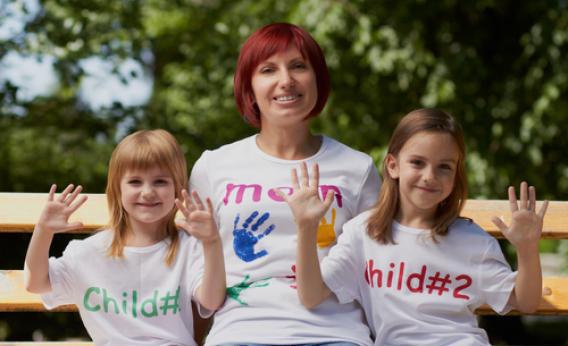My twin sister and I were raised under a few blanket principles. The stove is not a toy. Use your words, not your hands/nails/teeth. (She was a scratcher. I was a biter). Your mother and father love you both equally.
So I was surprised to come across this study all about favorite children, and how older mothers who receive care from the offspring they don’t prefer can suffer from depression. Don’t prefer?
In 2001, researchers at Purdue University found that 75 percent of 566 surveyed mothers between the ages of 65 and 75 named a particular child they would want to take care of them as they aged. Seven years later, the researchers checked back in. About half of the mothers, 234 of them, had fallen sick or become injured: Some were being tended to by their golden child, others by a different child, and others not at all. The Purdue team, led by Jill Suitor, Megan Gilligan and Karl Pillemer, saw increased anxiety and sadness in mothers who didn’t get the caretaker they wanted. These moms were more unhappy than the ones receiving no help at all. (On the other hand, mothers who secured the ministrations of their favorite kids broke even, psychologically: Apparently, having the “preferred” child care for you doesn’t make you happy; it just keeps depression at bay.)
Suitor and co. attributed their results to the idea that older parents long for caregivers who share their values and connect with them emotionally. On the phone, Suitor also suggested that honoring mom’s preferences gives her a sense of control over her life, one that can otherwise ebb if she’s fallen ill and her wishes are disregarded.
I confess I didn’t feel a lot of sympathy at first for the poor, depressed, favorite-picking mothers. If they hadn’t decided they liked one kid better than the rest, then maybe they wouldn’t be so unhappy when a different member of the brood stepped up. “Do most parents have favorites? I mean, this isn’t a common thing, right?” I asked Suitor, voice quavering.
Well, yes, it is. The word “favorite” is a charged term, but more than 90 percent of the 600 mothers Suitor’s interviewed are able to identify one kid who rises to the top of the heap in various contexts. For instance, these moms know who they feel closer to, who they especially like to confide in, who they’d want around in a crisis. And preferences often overlap across dimensions (although one that tends not to cluster with other attributes is “Who are you most proud of,” which seems like a biggie).
Furthermore, Suitor says, favoritism has less to do with the mother than with the children. Kids who behave in ways that reflect their folks’ core beliefs tend to bask in the parental halo. It is that easy. So if you find yourself dis-preferred, don’t bother blaming an arbitrary, witchy matriarch who suffers from some psychological compulsion to pick and choose: You brought it on yourself. (These hard truths may not just apply to moms. Daddy blogger Buzz Bishop recently admitted to having a favorite son—to much public outcry.)
“These preferences,” I pressed, still on the phone with Suitor. “I’d imagine they fluctuate over time. So different kids might seem more beloved at different moments, sure, but you can’t define a stable favorite.”
Wrong again. Over the past 13 years, Suitor has interviewed more than 3000 mothers for a variety of favoritism studies, and she says they mostly continue to choose the same children, time after time after time. She also mentioned that while kids prove extremely perceptive about whether or not their parents have favorites, they can only correctly identify the family darling with around 50 percent accuracy. Which is convenient for mom, Suitor adds, because chances are she’s been socially conditioned to deny having a favorite, even though she does.
